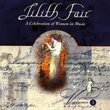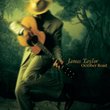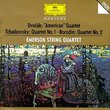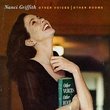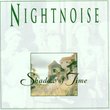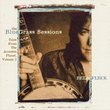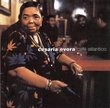| All Artists: Vladimir Horowitz, Schumann Title: Vladimir Horowitz I - (Great Pianists of Century series) Robert Schumann (2 CDs) Members Wishing: 3 Total Copies: 0 Label: Philips Release Date: 10/20/1998 Genre: Classical Styles: Chamber Music, Forms & Genres, Concertos, Fantasies, Sonatas, Historical Periods, Classical (c.1770-1830), Modern, 20th, & 21st Century, Romantic (c.1820-1910) Number of Discs: 2 SwapaCD Credits: 2 UPC: 028945683829 |
Search - Vladimir Horowitz, Schumann :: Vladimir Horowitz I - (Great Pianists of Century series) Robert Schumann (2 CDs)
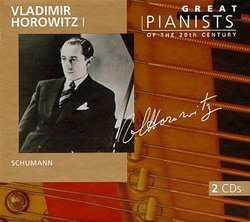 | Vladimir Horowitz, Schumann Vladimir Horowitz I - (Great Pianists of Century series) Robert Schumann (2 CDs) Genre: Classical
It's understandable that with a stature as legendary as that of Vladimir Horowitz--perhaps the superstar among the century's pianists--the misunderstandings run as thick as the clichés. Particularly in the period sinc... more » |
Larger Image |
CD DetailsSynopsis
Amazon.com It's understandable that with a stature as legendary as that of Vladimir Horowitz--perhaps the superstar among the century's pianists--the misunderstandings run as thick as the clichés. Particularly in the period since World War II, with the ascendancy of "objective" schools of pianism, Horowitz was often dismissed as an oversized throwback to a kind of 19th-century, neurotically subjective stunt man of the keyboard. Indeed, descriptions of his high-voltage performances tend to evoke extreme meteorological activity, from tornadoes to volcanic eruptions. Yet at its best, the pianist's formidable--and unduplicated--virtuosity served to animate a composer's vision with harrowing intensity. This first of Philips's three sets culled from the ample Horowitz discography focuses--in contrast to the second set--on a single composer, Schumann, for whom the pianist's deep-rooted affinity stretched across his career. There's the youthful bravura, stinging in its demonic energy, of the "Toccata" and "Traumeswirren" (recorded in the '30s), which Horowitz could still summon as a septuagenarian for the hair-raising "prestissimo possibile" of the rarely performed Sonata in F Minor ("Concert sans Orchestre"). One of Horowitz's great defining characteristics--the uniquely sinewy left hand--provides heft and color that must be heard to be believed in Schumann's great cycles Kreisleriana and the Humoreske, which benefit from the pianist's intuitive grasp of the composer's bipolar imagination. And if Horowitz seems synonymous with nothing more than technical fireworks, consider the breathtakingly distilled, rarefied, simple poetry of the account here of Kinderszenen, from one of the pianist's last concerts in 1987. --Thomas May Similarly Requested CDs
|
CD ReviewsHorowitz's Schumann: Virtuous Virtuosity Hank Drake | Cleveland, OH United States | 07/30/2003 (5 out of 5 stars) "Philips has dedicated three volumes (the maximum allotted) to the pianism and music making of Vladimir Horowitz. The first set, devoted to the pianist's beloved Schumann, documents performances from beginning and end of his career (the pianist's middle period Schumann is curiously ignored). This set belies the erroneous notion that Horowitz was a mere virtuoso--a stuntman would never spend time on inward pieces as Kinderszenen, or on such ungrateful works as the Fantasiestücke, Op. 111 or Sonata in F Minor, Op. 14. Horowitz's early performances of Schumann are relatively straightforward, confirming that the Horowitz of that era was not the "Last Romantic" but one of the moderns. Traumesswirren makes one wish the pianist has recorded the entire Fantasiestücke, Op. 12. The Toccata, with which the pianist was never comfortable, contains several minor mistakes, which could explain why it was not released until 1963, despite being recorded in 1934. Presto passionato, the original finale to Schumann's Op. 22 Sonata (Clara Schumann asked him to write another because it was too difficult!) is child's play for Horowitz, who makes a convincing case for its superiority to the composer's revision. One complaint here, Phillips has decided to utilize EMI's awful transfers (originally made in the 1960s for LP reissues) which suffer from tinny sound and awkward side-changes. Phillips would have been better off using Pearl's superior transfers. Kreisleriana was a Horowitz specialty. Phillips has chosen to include the pianist's 1985 studio recording. The interpretation here is freer, looser structurally than his 1969 recording. For me, the earlier version is still unmatched in its concentration and the laying bare of Schumann's duality--in my opinion it remains Horowitz's finest solo recording. But this 1985 version also has a lot going for it--the tempos are markedly flexible, without losing the basic meter; and the technique is remarkable, especially considering Horowitz was 82 at the time of the recording. The Humoreske, recorded in 1979, is also some of Horowitz's finest Schumann. The pianist masterfully molds Schumann's varied moods, or "humors" and builds them into a coherent whole. This performance has drawn the praise of such disparate interpreters and Pollini and Horszowski. The 1976 performance of the seldom played Sonata in F Minor (AKA "Concerto without Orchestra") is masterful in every way. Horowitz once told a colleague that the secret to playing Schumann was to treat it as "organized improvisation." That approach, balancing totality and detail, pays off handsomely here. Phrasing, dynamics, tempo are all so "right" that Schumann's neglected work is revealed in all its glory. The lovely Andantino is given a searching, inward looking performance, and the finale is dazzling. It's worth noting that this CD uses Horowitz's approved takes rather than the inferior outtakes used in RCA's 1989 CD release. The recording of Schumann's Novelette in F is the only recording by Horowitz in this genre of the composer's output to be released. The performance, from 1985, is broad, aristocratic, and a bit less emphatic than, say, Rubinstein's. Rumor has it that Horowitz recorded another Novelette in 1989, but it remains unreleased. The Fantasiestücke, Op. 111 was recorded live in 1980. Truth be told, this is not one of Schumann's more inspired works. The composer's productive life was nearly at an end when this was written, and this remains one of his least known works. Horowitz does all he can for the piece, but it remains the least interesting part of this collection. He only played it during the 1979-1980 season and then dropped the piece from his repertoire. It must be noted that Horowitz, in his performances of this work and on the recording he authorized for issue, appended two of the Op. 23 Night pieces to the work, providing an interesting contrast. Philips has deleted the two Night pieces, which violates Horowitz's program concept. Horowitz had a more steady relationship with Schumann's Kinderszenen. The pianist played it frequently in concert from the 1940s on. This version, his fourth official recording of the work, is from a live performance in Vienna's Great Golden Hall in May of 1987, one of Horowitz's last concerts. In many ways, it's also his finest recording of Kinderszenen. Horowitz's two studio renderings, from 1950 and 1962, are fairly straightforward accounts, with occasional lapses into pianistic micromanagement and hints of nervousness when there should be relaxation. A 1982 live recording is almost the opposite, with bizarre rubatos, distended ritards, slack rhythm, and almost no coherence. But here, in 1987, Horowitz has pulled himself together and plays with simplicity, controlled freedom, and conviction. It is often said that the elderly sometimes return to a childlike state. In old age, Horowitz had achieved communion with Schumann's rememberances of childhood lost. Despite variable sound quality, which is understandable since the recordings span a period of over 50 years, this volume is a must for piano and Schumann enthusiasts. Less understandable are some sloppy, inaccurate liner notes, which are sadly typical of this series." The Best of the Best Robert D. Wright | Georgia | 06/17/2000 (5 out of 5 stars) "Horowitz is undoubtably the best pianist of the century. The two CD set contains the best recordings of his extensive discography.The recording of the Schumann Kinderszenen Op. 15 is indeed the gem of this CD in my view. Each of the works in this set is performed with great care and insight. The No. 1 "About Foreign Lands and People" and No. 7 "Traumerei" are exceptional. One never tires of hearing Horowitz perform this work. The recording is as exciting to listen to as my hearing Horowitz perform it in recital in the 70's.The other works on these CDs as always are excellent. I believe these CDs are #1 of all the pianists released in this series.For those who truly love great piano playing, I heartily reccommend this set." The best, indeed C. Pinheiro Jr. | Săo Paulo, Brazil | 03/18/2005 (5 out of 5 stars) "This BLee "bpslee" review is a sad piece of pianistic ignorance. First, Rachmaninov never called Simon Barere a genius: actually, the great Russian composer-pianist is on record criticizing his compatriot for "equating tempi with speed itself". Second, to say that Barere was a superior technician to Horowitz borders on the grotesque. Technique is much more that mere digital speed, Barere's strong point. However, Horowitz's digital fleetness was on a par with Barere's and was much better controlled, and Horowitz used it only when he felt the music needed it. Take, for comparison purposes, Barere's famous recording of the Schumann Toccata, Op. 7 from the 30's. He certainly dashes off quicker than anyone else, but in the middle-section octave fireworks and in the climactic run at the end, Horowitz, in his first (monaural) recording, is FASTER than Barere (if you don't believe me, time the versions). The same goes for Scriabin's Etude Op 8 n° 12, where Horowitz out-speeds Barere in the more virtuosic passages. And in terms of independence of hands, equality of finger and ability to juggle complex polyphonic strands, Horowitz was far superior to Barere, as witness his ultra-complicated transcriptions of Liszt's Hungarian rhapsodies. Barere was never capable of equalling such level of tightrope acrobatics. And, last but not least, there is the matter of sound. Horowitz's dynamic range and tonal control, not to mention his portentous sonority, simply put Barere to shame. For this, just compare Barere's 1947 rendition of Chopin's Ballade in G minor, Op. 23 with Horowitz's recording of around the same time: it's the difference betwen a black-and-white picture and a colour one. To conclude, I challenge this BLee reviewer - or any other, for that matter - to produce any statement by Rachmaninov, Hofmann, Rosenthal or any of the great masters of the past saying that Barere was superior to Horowitz."
|

 Track Listings (23) - Disc #1
Track Listings (23) - Disc #1
